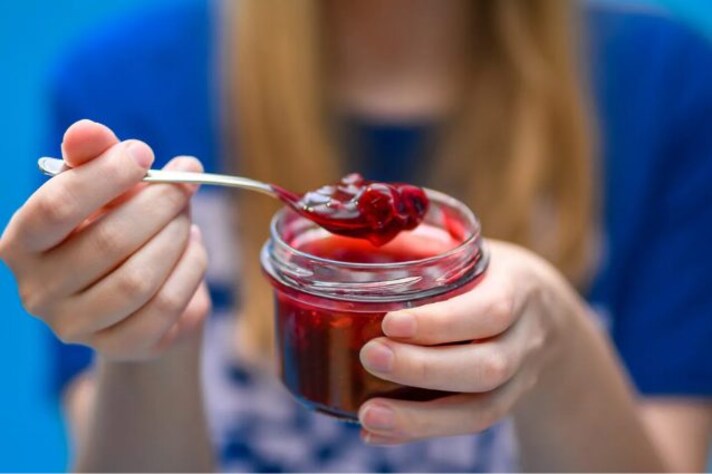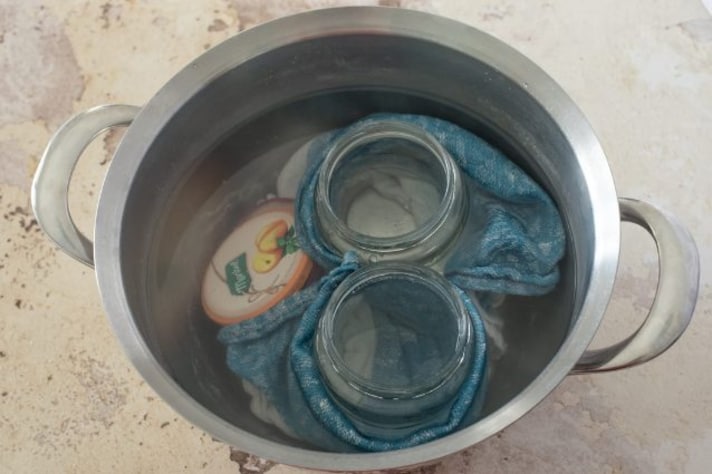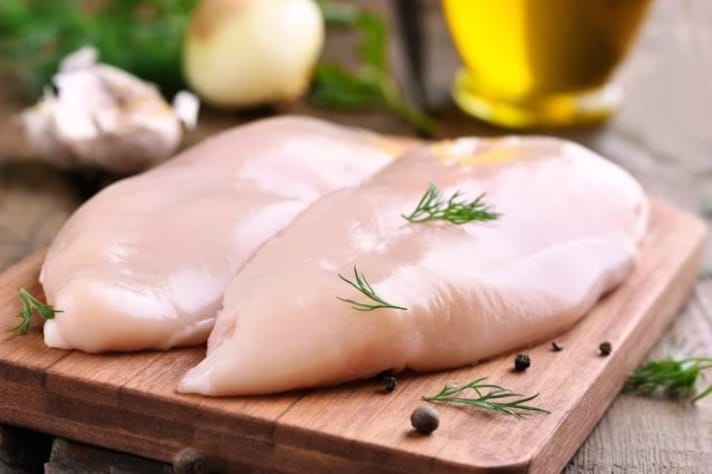
In the context of food safety, botulism is a term that generates fear and concern. Not to be confused with mold, botulism is a neurotoxin generated by the bacterium Clostridium botulinum, capable of causing a serious form of poisoning called botulism. The foods most at risk are especially home-made preserves, such as vegetables in oil and pickles (vegetable, meat or fish), spices in oil and flavored oils, certain ready-to-use refrigerated products called REPFED (Refrigerated Processed Food with Extended Durability), such as soups and broths where, at various levels, the cold chain has not been respected, with the risk of spores proliferating. The effects on humans are very serious, ranging from muscle paralysis to nervous system impairment that can potentially even lead to death.
1. Does Botulism Develop in Jams and Preserves?
Among the most common homemade preserves are jams and marmalades, which generally have a very low risk of botulism. The reason? An unfavorable environment for its growth is created thanks to the high concentration of sugar (usually half or slightly less than that of fruit) which often also sees the addition of lemon juice, which has an acidifying effect. The danger, however, comes when sugar is used in limited quantities.
2. Honey and Botulinum: What Are the Risks?
Precisely because of its high sugar concentration, honey is considered a safe food compared to food-borne botulism that adults are subject to. What you need to be careful about, however, is infant botulism, so called because it affects children under one year of age who have not yet developed a strong intestinal flora to react to the spores. In fact, honey is not recommended for children under 12 months.

3. Can Vinegar and Salt Reduce the Risk?
Yes, because as with sugar, these two foods also negatively affect the development of spores. This is because botulinum does not tolerate very acidic contexts, so it is not found in preserves that have a pH lower than 4.6. As suggested by the Veronesi Foundation, the safety value is a product made by "boiling the vegetables for a few minutes in a solution made of 50% water and 50% vinegar that has an acidity of at least 5.5%. The brine must contain at least 15% salt".
4. Is There Botulism in Alcohol Preserves?
No, in those products made with ethyl alcohol at 90 °C botulinum cannot grow, as it inhibits it in the same way as the acid pH just described.
5. Is Boiling the Jars Useful to Avoid This?
The answer is no, since botulism develops in food. Sterilizing empty jars is important to ensure a thorough cleaning of the container, thus reducing possible contamination by germs and bacteria that, however, have nothing to do with the toxin in question.

6. Does Botulism Survive Cooking?
According to the ISS, cooked foods are safe, as we are dealing with a thermolabile toxin, which means it is destroyed by heat. The bacterium that produces it, Clostridium botulinum, remains alive, but the spore is practically inactive, causing no harm to the individual. It is useful to specify that the definition of "cooking" is: "heat treatment of 80 °C for at least 10-15 minutes to the heart of the product". For this reason, with home-made preserves, it is recommended to boil them for at least 5 minutes and not to consume them if there is even the slightest doubt (for example, if you have observed swelling of the cap or an unusual smell, color and consistency, signs of its presence).
7. Does Freezing Foods Eliminate the Risk of Botulism?
Yes, the low temperatures of the freezer do not eliminate the bacteria, but they block its toxin-producing activity.
8. Are There Any Risks With Fresh Foods?
No, according to the ISS, fresh foods are not at risk of botulism. In fact, the bacterium develops in an environment completely devoid of oxygen, typical of processes suitable for the prolonged preservation of food.

9. What Are the Early Symptoms of Botulism?
We conclude with the symptoms of poisoning, because they may seem atypical compared to the more common consequences of food poisoning. No nausea, vomiting or diarrhea: the mildest and most severe forms manifest themselves from 6 hours to 15 days after ingesting the contaminated food with: blurred and double vision (diplopia), dilated pupils (bilateral mydriasis), difficulty keeping the eyelids open (ptosis), difficulty in articulating speech (dysarthria), difficulty swallowing, dry mouth and throat (xerostomia), constipation.
What to Do If You Have Symptoms
Botulism is a serious food poisoning that can cause muscle paralysis and, in severe cases, death. Never ignore the symptoms and seek immediate medical attention or the nearest emergency room. Here's what to do while waiting for help:
- Don't self-medicate: Avoid taking any type of medication without first consulting a doctor.
- Keep calm: panic can make the situation worse.
- Rest: Try to maintain a comfortable position and rest until help arrives.
;Resize,width=767;)
